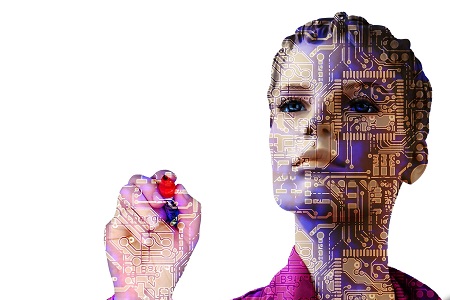Cambridge festival of ideas asks if robots will replace lawyers?
Over the past few years, the impact of robots and AI on the UK jobs market has been huge. Already, thousands of people have found their jobs have been replaced by robots, with a study published by the BBC estimating that 800 million workers could lose their jobs to AI by 2030.
Among the jobs most at risk of disappearing are those in manufacturing, sales, and customer service, though jobs in all industries may be in trouble.
This year’s Cambridge Festival of Ideas is set to feature a number of talks on the impact of AI in the workplace.
One of the main topics up for discussion is whether or not AI has a place in the world of justice and if, one day, robots could replace lawyers altogether. Keep reading to find out more.
Lex Ex Machina
As @camideasfest asks, “From robot surgeons to sophisticated algorithms determining the jobs we get and what we read in the news, AI is ubiquitous in our lives. But how much further can this technology take us?”
On 18 October, St John’s College Old Divinity School will host a talk designed to answer at least part of this question. Titled ‘Lex Ex Machina: Will AI Replace Lawyers, Judges and the Rule of Law?’, it will take an in-depth look at how AI is impacting the world of justice and what the future of AI lawyers might look like.
Led by Dr Christopher Markou, Leverhulme Fellow and Cambridge lecturer, the talk will examine whether AI could eventually replace lawyers and judges. Participants will try to answer questions such as, if this were to happen, would the world of justice be better off or would it negatively impact the legal process?


Law by numbers
One of the main benefits of replacing lawyers and judges with robots is that evidence would be taken purely at face value. An AI programme could quickly and efficiently analyse the facts of a case, compare what it finds to the relevant laws and come up with a verdict, all in a matter of moments.
This evidence couldn’t be subject to personal bias and the AI programme’s own experience wouldn’t impact on its findings.
The case against
Although personal interpretation isn’t always a good thing when it comes to law and judgement, being able to understand the concept of human error and human emotion is.
Although an AI programme would be able to understand and analyse hard facts, it wouldn’t be able to really get to grips with motive. This lack of flexibility could have a serious impact on legal proceedings and may mean victims, and criminals, don’t get the due process they deserve.
Find out more about The Cambridge Festival of Ideas, and about other exciting events taking place in the city, by exploring our site today.
